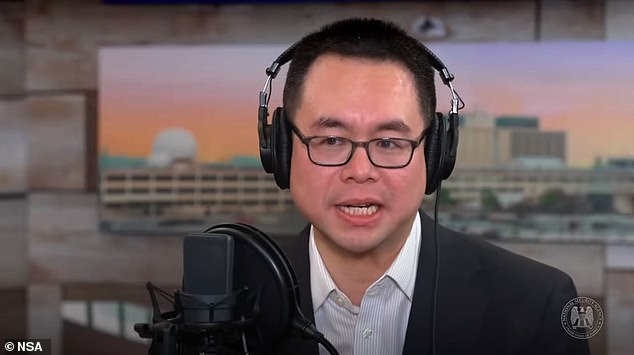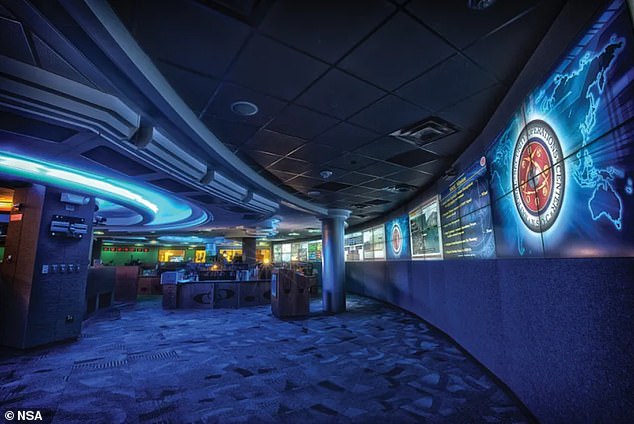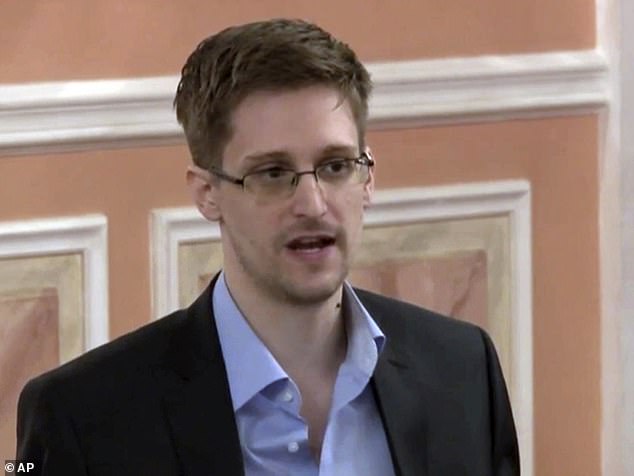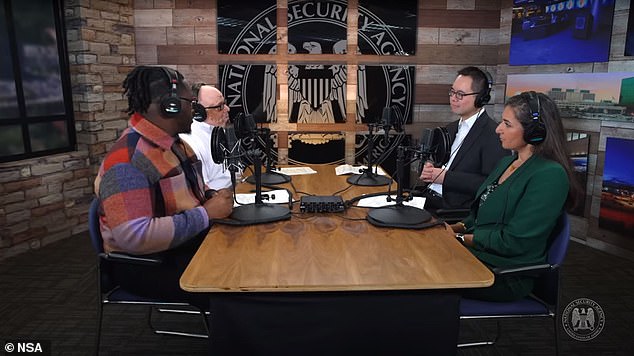Spies are supposed to keep quiet about their trade, but that is changing at the National Security Agency (NSA) after seven decades of covert secrecy.
The agency, once known as the Black Chamber, launched a podcast that is shaking up the world of intelligence gathering, while also issuing a warning about China’s artificial intelligence capabilities.
NSA podcasters have already opened their files on the search for terror mastermind Osama bin Laden, exposing the widespread threat from Russian hackers.
But the most revealing episode so far has uncovered artificial intelligence (AI) and the arms race for data supremacy between the United States and China.
Beijing is “very focused on investing in AI to get that economic, diplomatic, political and military advantage,” Vinh Nguyen, the agency’s AI chief, says in episode three.
The NSA’s weekly ‘No Such Podcast’ program began this month and will run until mid-October.

The podcast offers a look through the door at the NSA headquarters in Fort Meade, Maryland.
The People’s Republic is using AI to build smart weapons and carry out disinformation campaigns in a bid to “outcompete, outmaneuver and outmaneuver the United States and the West,” he warns.
“We don’t want to live in a society where our AI is built and managed by the People’s Republic of China, because it is not based on our democratic values,” Nguyen added.
The program marks a change for the NSA, which until now was seen as the most cautious of the US intelligence agencies.
Everything from its annual operating budget and the number of staff and contractors working there is classified.
There is no sign on the avenue to its headquarters campus in Fort Meade, Maryland.
It’s so secretive that politicians in Washington, D.C., joked that the NSA actually stood for “There is no such agency.”
That joke gave rise to the name of the eight-part audio series: No Such Podcast.

Vinh Nguyen, agency’s AI chief, says China threatens to ‘overtake’ US with artificial intelligence

In the photo: NSA headquarters.
NSA spokesperson Sara Siegle says there is a serious side to the show, which is available on Spotify, YouTube and other platforms.
The staff has worked for decades to “defend the nation,” but they never manage to take a bow because their operations are clandestine.
“It’s time to start telling more stories we can talk about, share more expertise, and shine a spotlight on these incredible public servants,” Siegle says.
The series began with revelations about the search for and killing of Bin Laden, who masterminded Al Qaeda’s coordinated attacks on the United States on September 11, 2001, which claimed nearly 3,000 American lives.

The first episode of the podcast reveals how the NSA helped track down terrorism mastermind Osama bin Laden.

NSA spokesperson Sara Siegle says there is a serious side to the show about working at the agency (pictured)
The attack on Bin Laden’s compound in Pakistan has been documented in films, books and many articles.
But while much is known about the involvement of the CIA and the Pentagon, less is known about the role of the NSA.
Behind the scenes, it turns out that the NSA was responsible for intercepting and analyzing calls identifying bin Laden’s key associate who would eventually lead agents to the hideout in Abbotabad.
Agents located the associate, a courier, in northwest Pakistan, and pressured colleagues from other agencies to devote more resources to the investigation of the three-story walled complex.
That began an investigation that ultimately led to the attack that killed bin Laden in May 2011.
The program focuses on the foreign signals intelligence (SIGINT) underlying the raid, which is critical to the NSA’s work.
But speaking openly about it marks a change for the clam-like agency that emerged from the Cipher Bureau: the 1919 creation of the US State Department, also known as the Black Chamber.
President Harry Truman issued the directive to create the NSA in 1952, consolidating the encryption unit and other surveillance activities after World War II.
Over decades, it expanded its interception of communications, including mass, warrantless tapping of phones and emails in the years after the 9/11 attacks.
The enormous amounts of data absorbed by the NSA became a source of growing concern. In 2011, former NSA official Thomas Drake was suspected of revealing information about the agency’s wiretapping program.
More damaging leaks occurred two years later, when contractor-turned-whistleblower Edward Snowden fled the United States and handed over documents to newspapers showing the massive reach of American surveillance programs.
Russia granted him asylum and, later, citizenship.
Still, there are limits to how much NSA officials let slip in their weekly download.

US commandos lost one of their helicopters during the attack on bin Laden’s compound in Pakistan

NSA whistleblower Edward Snowden fled the United States in 2013 and provided documents to newspapers showing the massive reach of American surveillance programs.
Nguyen spoke clearly about the threat of AI from China, but his comments are similar to many Washington, DC policy papers on the topic.
The killing of Bin Laden is now firmly in the rearview mirror.
And the podcast shed no light on the coveted ‘sources and methods’ that continue to be used to gather intelligence.
Additionally, the series has focused on the hard work and successes of the agents.
So don’t expect to hear an episode about Snowden’s damaging leaks anytime soon.
The podcast comes at a time when other DC insiders seem to be bringing their skeletons out of their closets more.
Today, American intelligence agencies at least have social media accounts.

China is using AI to build smart weapons and carry out disinformation campaigns in a bid to “outcompete, outmaneuver and outmaneuver the United States and the West,” Nguyen warns.
In 2014, the CIA joined Twitter/X, making a gag in its initial missive, saying: “We can neither confirm nor deny that this is our first tweet.”
In January, Congress took the bold step of holding a public hearing on the UFO sightings.
But the best is yet to come.
Perhaps the most compelling mystery in American political history is who, if anyone, conspired to assassinate former President John F. Kennedy.
Last month, former President Donald Trump promised to reveal all remaining secret files on the fatal 1963 Dallas shooting as part of his own re-election campaign.


